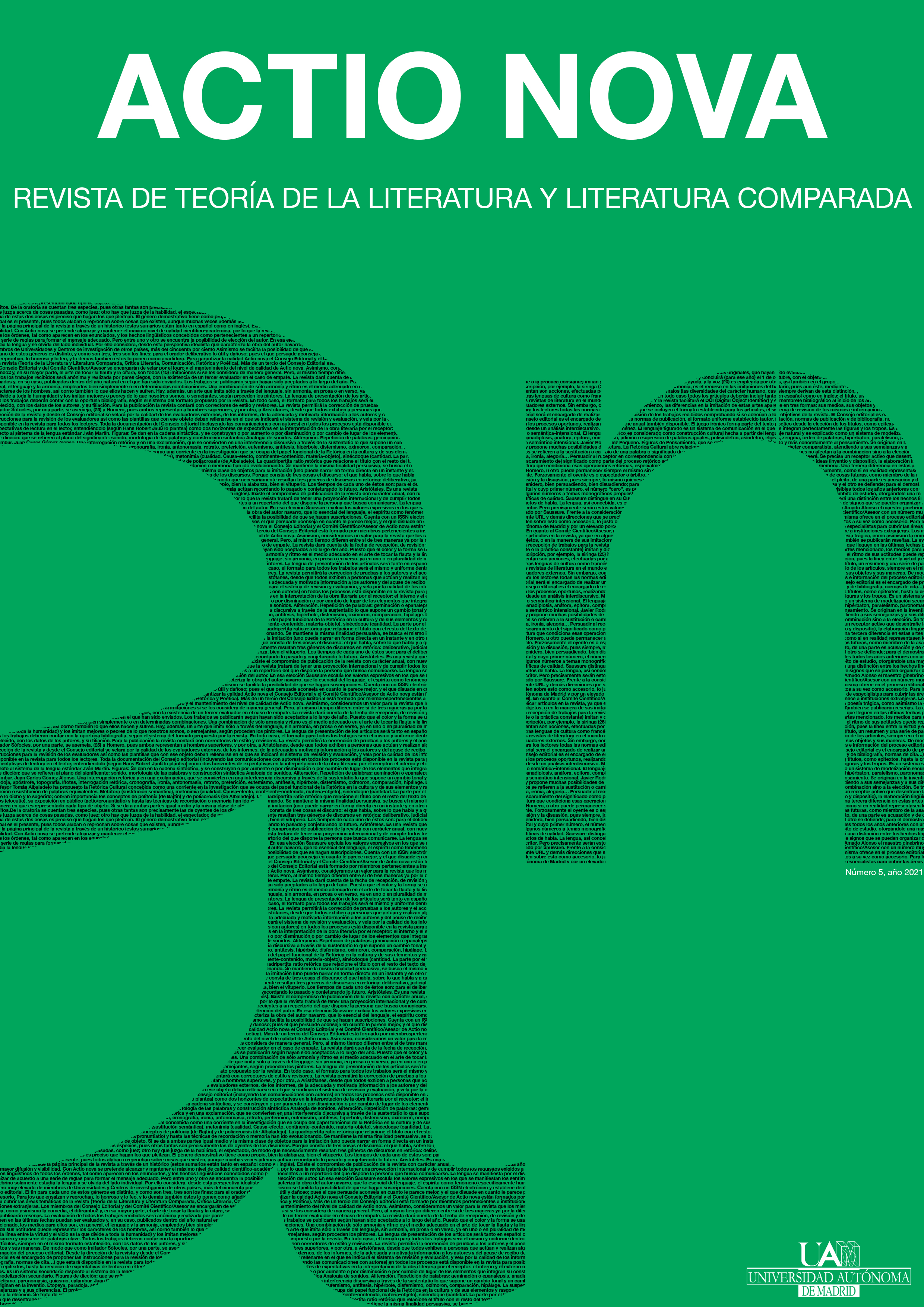Keywords:
scientism, otherness, Edgar Allan Poe, Ciro B. Ceballos, Leopoldo LugonesCopyright (c) 2021 Coral Velazquez Alvarado

This work is licensed under a Creative Commons Attribution-NonCommercial 3.0 Unported License.
Abstract
Among the nineteenth century, the scientific method had repercussions in different areas such as the legal one, specifically in Criminalistics, to generate the characterization of the offender. In its intersection with medicine and anthropological studies, it was based on the concepts of degeneration and decadence. Although they are theories that have already been overcome, at the time they formed the hegemonic discourse of Western societies. Under his influence, the literati devoted themselves to narrating clinical and police cases; led by Edgar Allan Poe, a fundamental influence for the Latin Americans Ciro B. Ceballos and Leopolgo Lugones, who, together with the North American, sought to question the scientific arguments that served to dominate rather than to civilize. To this end, they use characters close to the human species, the ape, to represent an Other that is the marginal, the primitive, the non-Western and that helped them to relativize the prevailing values.
Downloads
References
Bartra, Armando (2008). «El cuerpo grotesco», prólogo a El monstruo objeto imposible. Estudio sobre teratología mexicana, siglo XIX. México, Universidad Autónoma Metropolitana/Ítaca.
Bartra, Roger (2014). El mito del salvaje. México, Fondo de Cultura Económica (Tezontle).
Bondeson, Jan (1998). Gabinete de curiosidades médicas. Traducción de Nuria Parés. México, Siglo XXI Editores (Ciencia y Técnica).
Caponi, Sandra (2009). «Para una genealogía de la anormalidad: la teoría de la degeneración de Morel», en Scientiæ Zudia, vol. 7, 3: 425-445.
Castillo Martín, Francisco Javier (2011). «3. Poe y la ciencia ficción», en Los legados de Poe. Ed. Margarita Rigal. Madrid, Editorial Síntesis, 2011 (Letras Universitarias).
Ceballos, Ciro B. (1982). Un adulterio. México, Premiá Editora (La Matraca, 23).
Chapple, J: A. V. (1986). Science and Literature in the Nineteenth Century. Macmillan Education Houndmills, Basingstoke, Hampshire and London.
Corvalán, Octavio (1982). «Las presuntas preguntas científicas de Yzur», en La letra en el espejo (Ensayos). Salta, Universidad Nacional de Salta, Departamento de Humanidades.
Cuvier, George (1829). Le Règne Animal. Distribué d’après son organisation. Paris, Chez Deterville.
Englekirk, John Eugene (1934). Edgar Allan Poe in Hispanic Literature. New York, Instituto de las Españas.
Ferrús Vicente, Joan (2009). «El discurso científico en la obra de Edgar Allan Poe», en Revista electrónica de teoría de la literatura y literatura comparada, 1: 28-41.
https://452f.com/el-discurso-cientifico-en-la-obra-de-edgar-allan-poe-joan-ferrus (14 de agosto de 2021).
Fraser, Howard M. (1996). «Apocalyptic Vision and Modernism’s Dismantling of Scientific Discourse: Lugones’s ‘Yzur’», en Hispania, 79-1: 8–19.
Haywood Ferreira, Rachel (2011). The Emergence of Latin American Science Fiction. Middletown, Connecticut, Wesleyan University press.
Hernández Roura, Sergio (2020). Edgar Allan Poe y la literatura fantástica mexicana (1859-1922). México, Bonilla Artigas Editores (Pública Ensayos, 13).
Lugones, Leopoldo (2011). Los cuentos de Leopoldo Lugones. Edición a cargo de Martín Artagaveyta. Buenos Aires, Ediciones Díada.
Morel, Bénédict Augustin (1857). Traité des Dégénérescences Physiques, Intellectuelles et Morales de l'Espèce Humaine: Text and Atlas. Paris, J. B. Baillière.
Narváez Hernández, José Ramón (2005). «Bajo el signo de Caín. El ser atávico y la criminología positiva en México», en Anuario Mexicano de Historia del Derecho, XVII: 1-19.
Otis, Laura (Ed.) (2002). Literature and Science in the Nineteenth Century An Anthology. Edición, introducción y notas de Laura Otis. New York, Oxfrod University Press (Oxford World’s Clasics).
Poe, Edgar Allan (2001). Cuentos, 1. Traducción de Julio Cortázar. Cuarta reimpresión. Madrid, Alianza Editorial (Literatura).
Rabaza Soraluz, Luis (2005). «Revancha y liberación de los monos: César Vallejo y la narrativa de la modernidad finisecular», en César Vallejo: estudios de poética. Comp. Jesús Humberto Florencia. México, University of Texas/Ediciones Eón (Colección Ensayo): 163-208.
Santiestevan Oliva, Héctor (2003). Tratado de monstruos. Ontología teratológica. México, Universidad Autónoma de Baja California Sur.
Stead, Evanghélia (2004). Le Monstre, le Singe, et le Fœtus. Tératogonie et Décadence dan l’Europe fin-de-sciècle. Gèneve, Librairie Droz.
Urías Horcasitas, Beatriz (2000). Indígena y criminal. Interpretaciones del derecho y la antropología en México. 1871-1921). México, Universidad Iberoamericana/Departamento de Historia, Consejo Nacional para la Cultura y las Artes/Fondo Nacional para la Cultura y las Artes.
